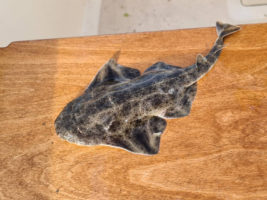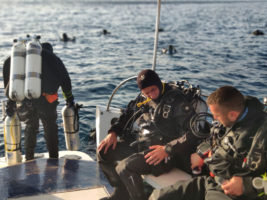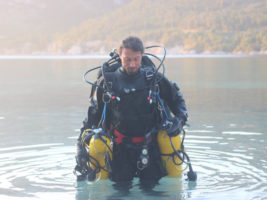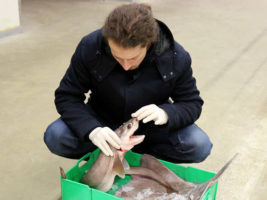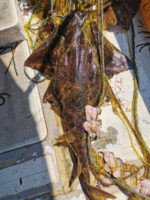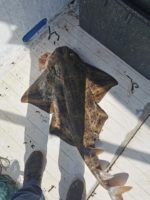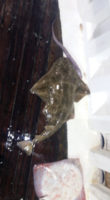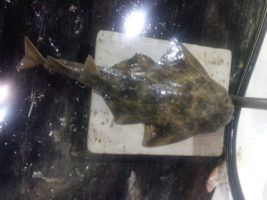Avoiding extinction of angel sharks in the Adriatic Sea
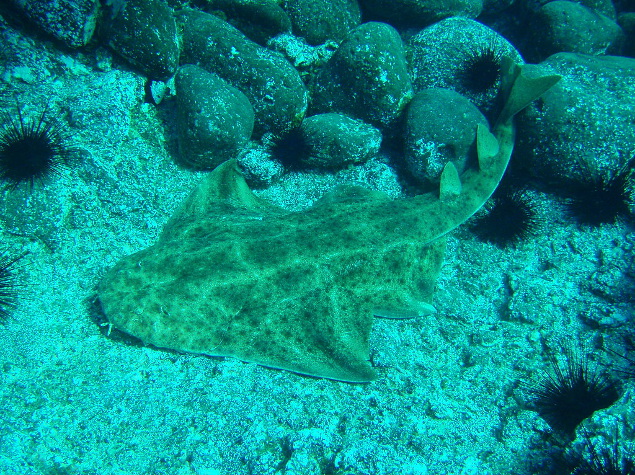
CONTEXT
Angelsharks are a critically endangered benthic species in the Mediterranean Sea, with decreasing population trends on a global scale. At the beginning of the past century, common angelsharks (Squatina squatina) were probably widespread across the eastern Adriatic, but a dramatic decrease of population happened in the last 50 years caused by overfishing, unselective fisheries, pollution and other factors. Recent studies recognize the total collapse of populations but prove that the species is still present in certain areas of the Adriatic Sea.
Unlike the once abundant common angelshark, Smoothback angelshark (Squatina oculata), was sporadically found, mostly in the middle Adriatic and today it is thought to be extinct on Croatia’s shores, and probably within the rest of the Adriatic Sea. A recent detailed report suggests one species is still present in the eastern Adriatic (Squatina squatina), one possible regional extinct regionally (Squatina oculata) and another possible first records of a third species within the genus Squatina (Squatina aculeata).
OBJECTIVE
The aim of this project, implemented by Sharklab ADRIA and its partners, is to assess the current status of critically endangered angelsharks within the eastern Adriatic Sea in order to predict the future status of populations and propose further regional conservation measures. Database with trusted records will be established, along with the assessment of the negative impact of pollution (such as microplastics and war waste), accompanied with education and awareness raising activities.
ACTIVITIES
In order to achieve the proposed goals and objectives, this project will be comprised of field research and stakeholder meetings, followed by laboratory analysis of by-catch (if samples are obtained) and publication of results. Field studies will include detailed analysis of small-scale fisheries and fish markets across the eastern Adriatic, then technical diving and the use of Remotely Operated Vehicle at chosen localities. If possible, the team will manage to obtain already dead by-catch specimens and perform pathological studies. Workshops/lectures will be organized in key groups (stakeholders, students) and wider public masses, followed by communication via medias. Through gathered results, Sharklab ADRIA and its partners will publish original scientific papers and propose species-specific unique conservation measures in the region, ensuring full legal protection of angel sharks in the Adriatic Sea.
Final report summary (November 2021):
-
- Through the project 37 individuals have been observed (including neonatals, juveniles and adults) through the expeditions and reported by fishermen.
- The project proved that critically endangered Squatina squatina (CR) is still present in the very fragmented areas of the eastern Adriatic with rare, but persistent, records, while S. oculata is considered as regionally extinct (RE).
- Proposed long-term in-situ conservation measures have been shared with the governments of the region, while a Subregional Action Plan for Angel sharks is currently being finalized.
- Other critically endangered species, such as Angular rough sharks (Oxynotus centrina) have been assessed and the results published in the Journal of Fish Biology.
- Studies on the effects of pollution on disease development have been conducted and new diseases occurring in liver parenchyma, kidney, nidamental glands and pancreas described.
- Students, young experts, fishers, NGOs and wide public received awareness raising on research methods, participatory science and biology.
- Monitoring of the confirmed population in Zadar-Šibenik archipelago is necessary, while further study should be done urgently in Albanian waters.
The results of the project were published as original scientific paper in the Croatian Journal of Fisheries:
https://ribarstvo.agr.hr/en/issues/article/1328
The significance of the results was recognized internationally and featured by National Geographic, as well as other regional media. A recent article featured in Swiss “Le Temps”:
https://www.letemps.ch/sciences/requin-ange-une-espece-sursis (in French, subscription required).
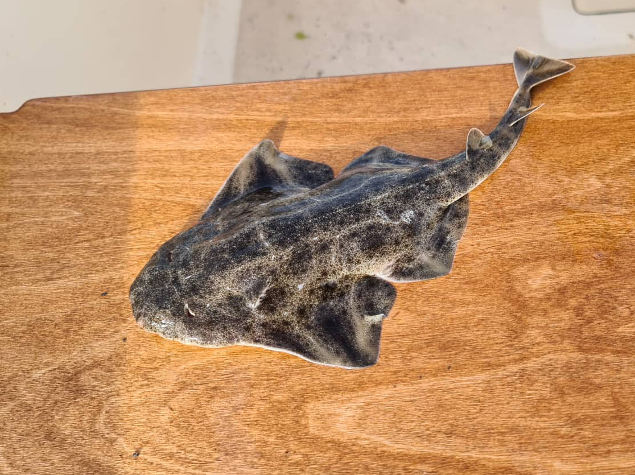
Neonatal (less than 30 cm TL) caught in the channel between Rivanj and Mulin, at the dept of 15 m and reported by local fisherman. Photo © Sharklab ADRIA
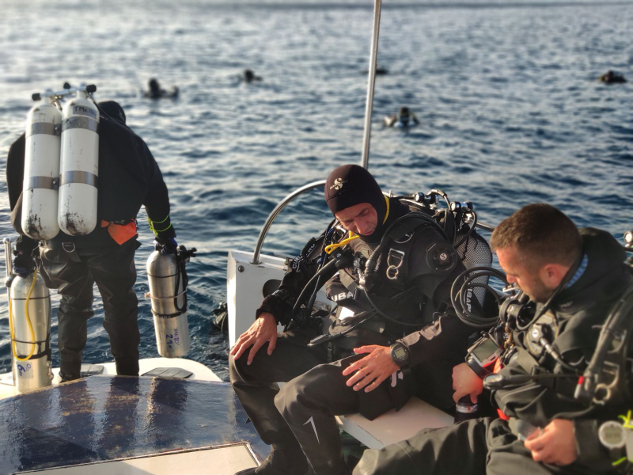
Extensive field sureys conducted during the project in partnership with DC Vosna. Photo © Sharklab ADRIA
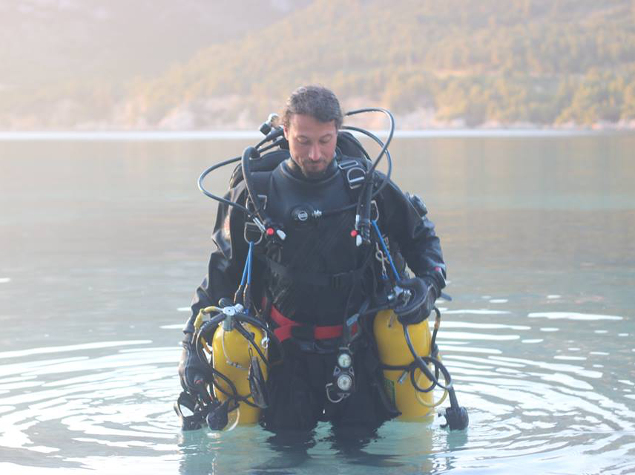
Andrej Gajić during the research technical diving in the shelves of the Pešeljac Penninsula (Croatia). Photo © Sharklab ADRIA.
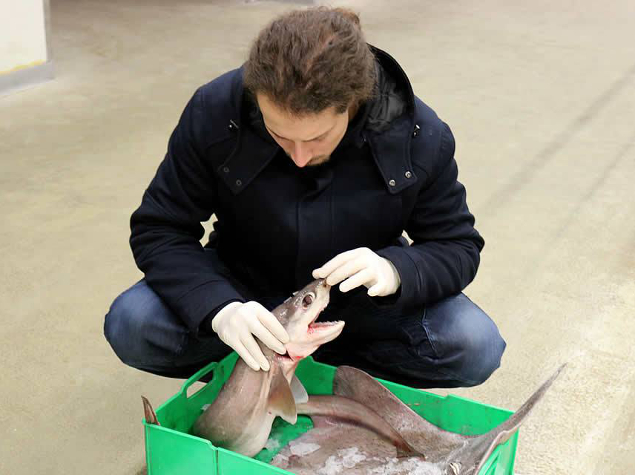
Andrej Gajić sampling the deep-sea elasmobranch species, critically endangered Blue skate (Dipturus batis) and data deficient Sharpnose sevengill shark (Heptranchias perlo) cought in the upper slopes. Photo © Sharklab ADRIA.
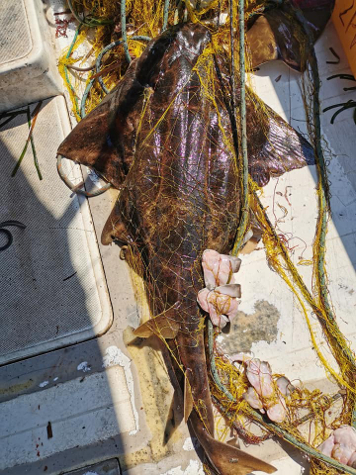
Adult female caught with neonatals and successfully realased alive in Zadar-Šibenik archipelago. Photo published by: N. Kosanović
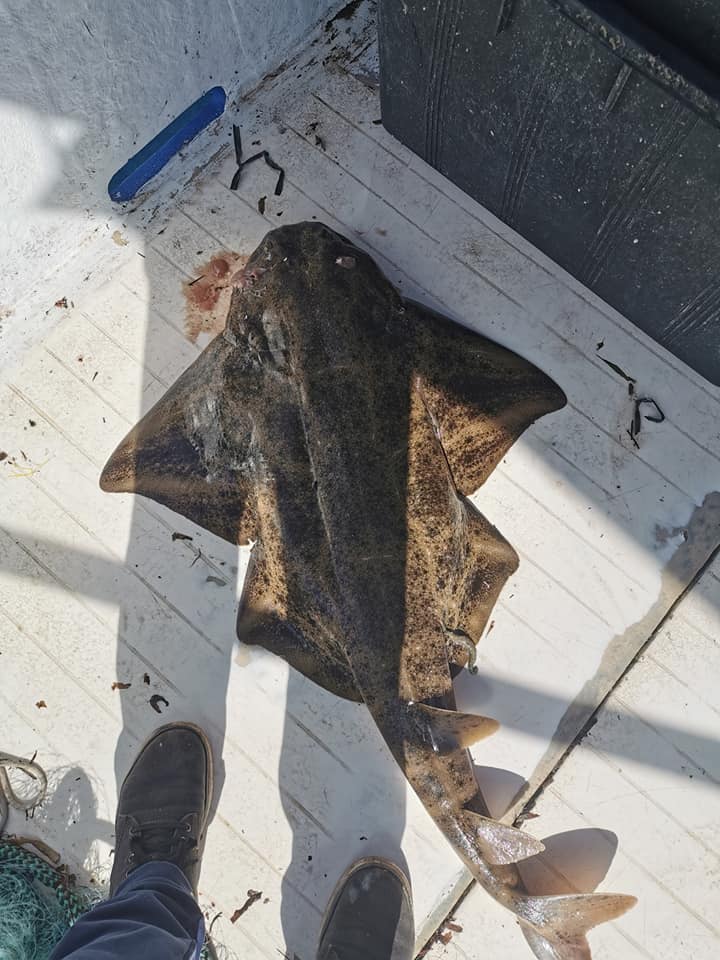
Adult specimen landed and released alive by local fisherman in August 2021. Photo published by: N. Kosanović
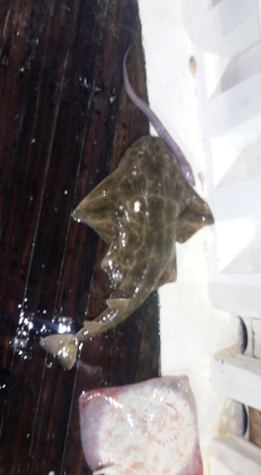
An adult male measuring 90 cm TL caught 1 NM off the Smokvica mala island, during the expedition in Murtersko more (Croatia). Photo © Sharklab ADRIA.
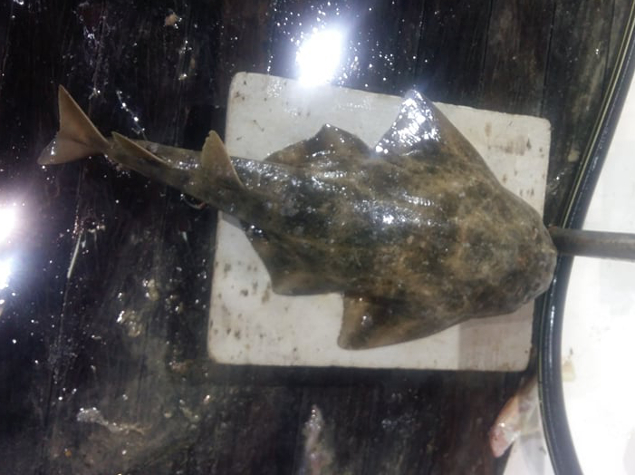
Subadult female caugth 2 NM off the Prišnjak island at depth of 70 m by partenrship trawler boat, during the expeditions in Murtersko more (Croatia). Photo © Sharklab ADRIA.
